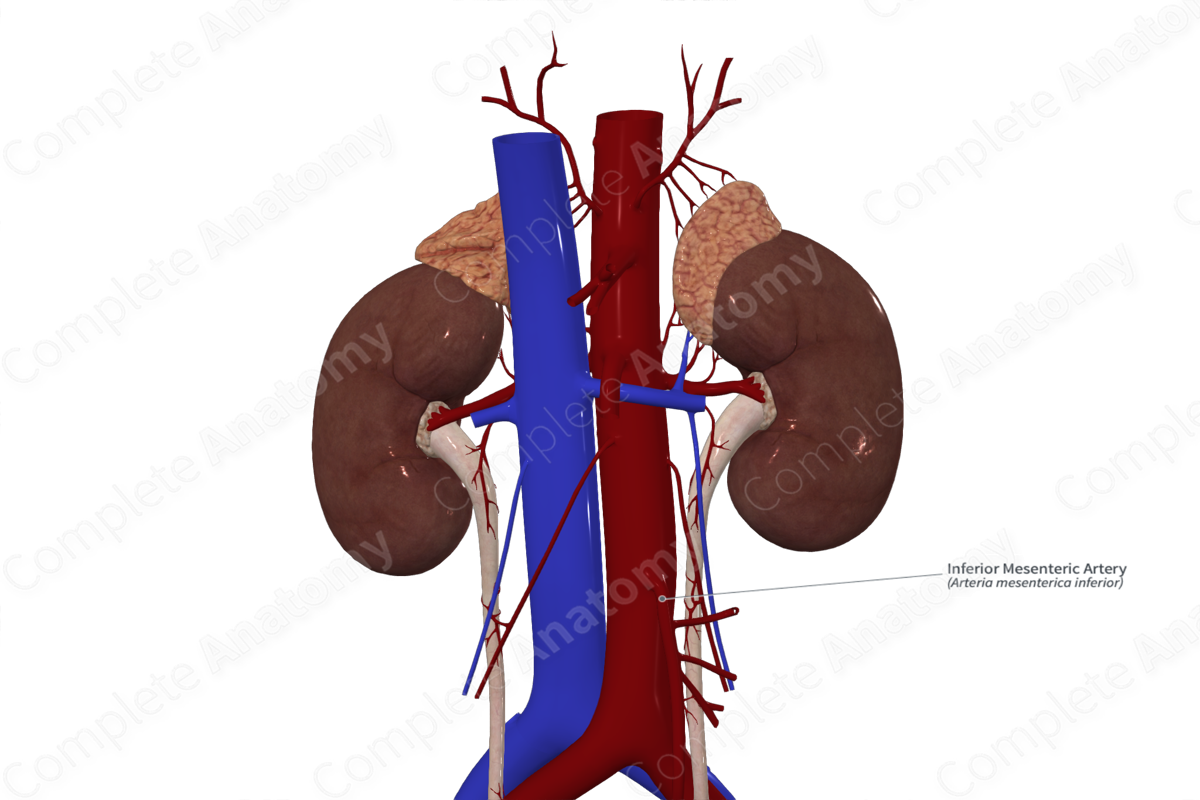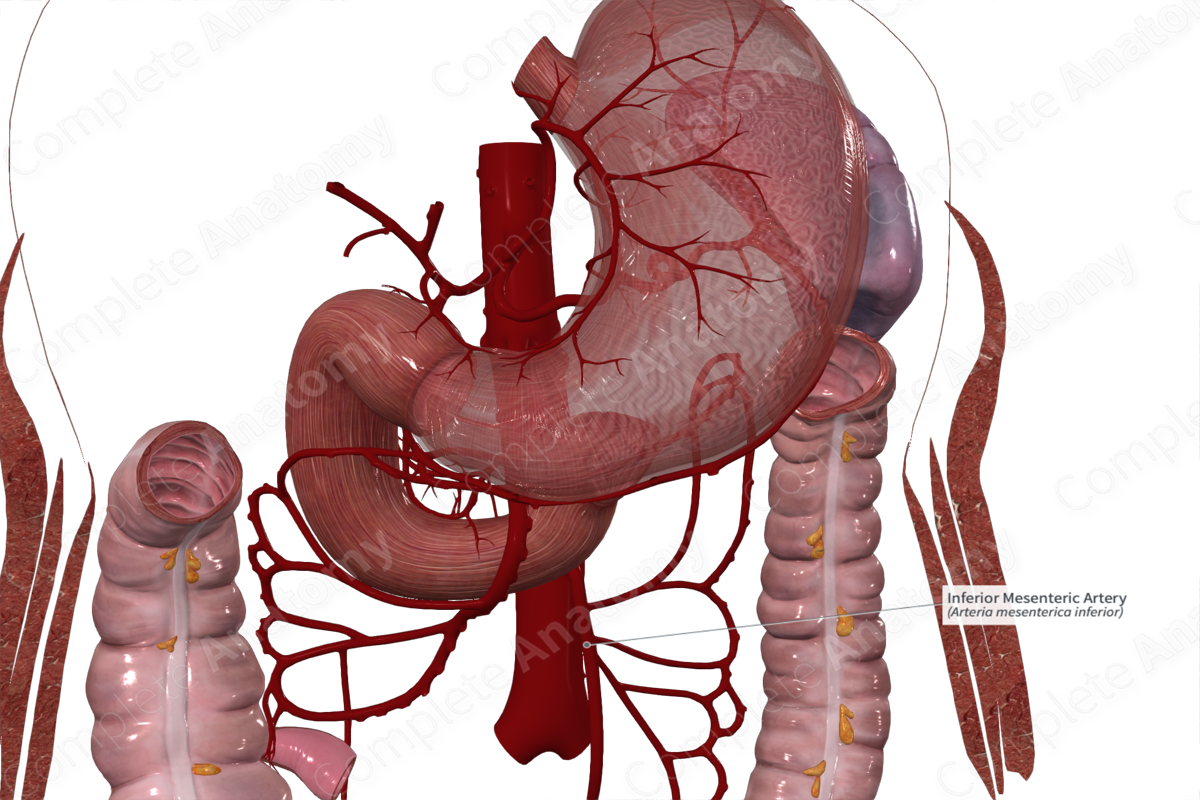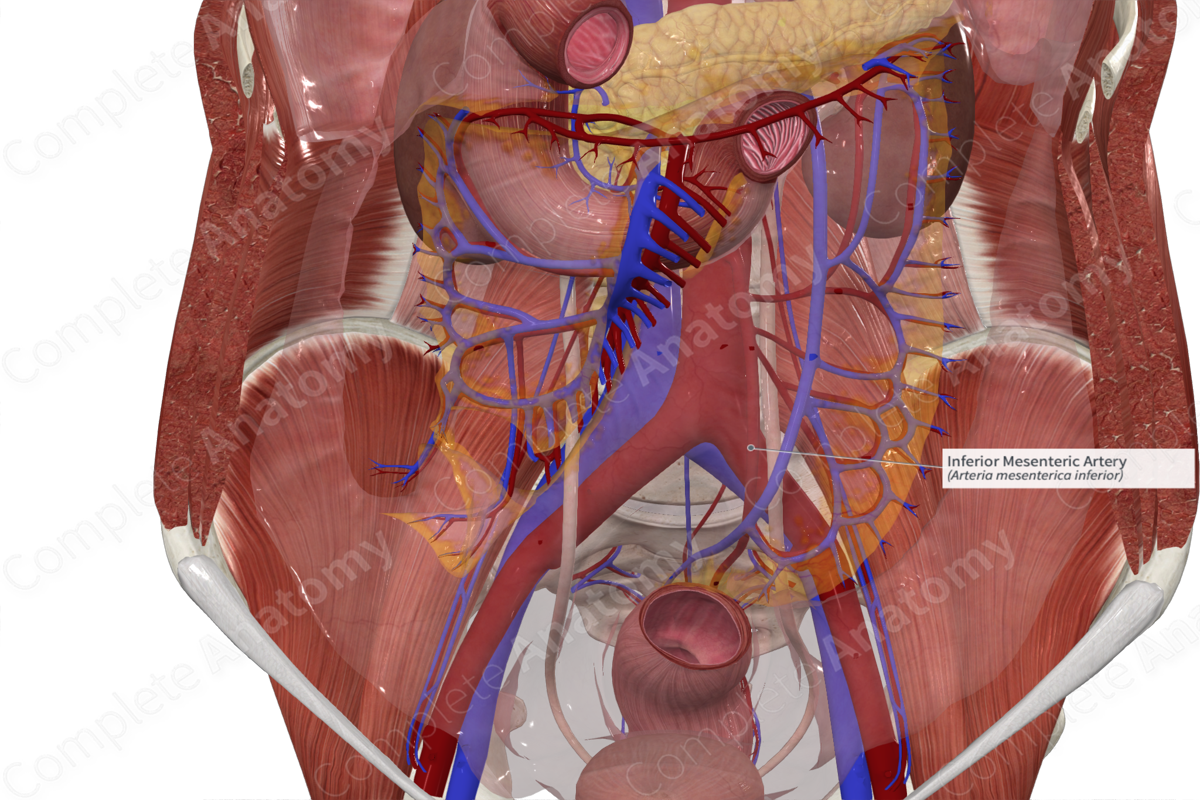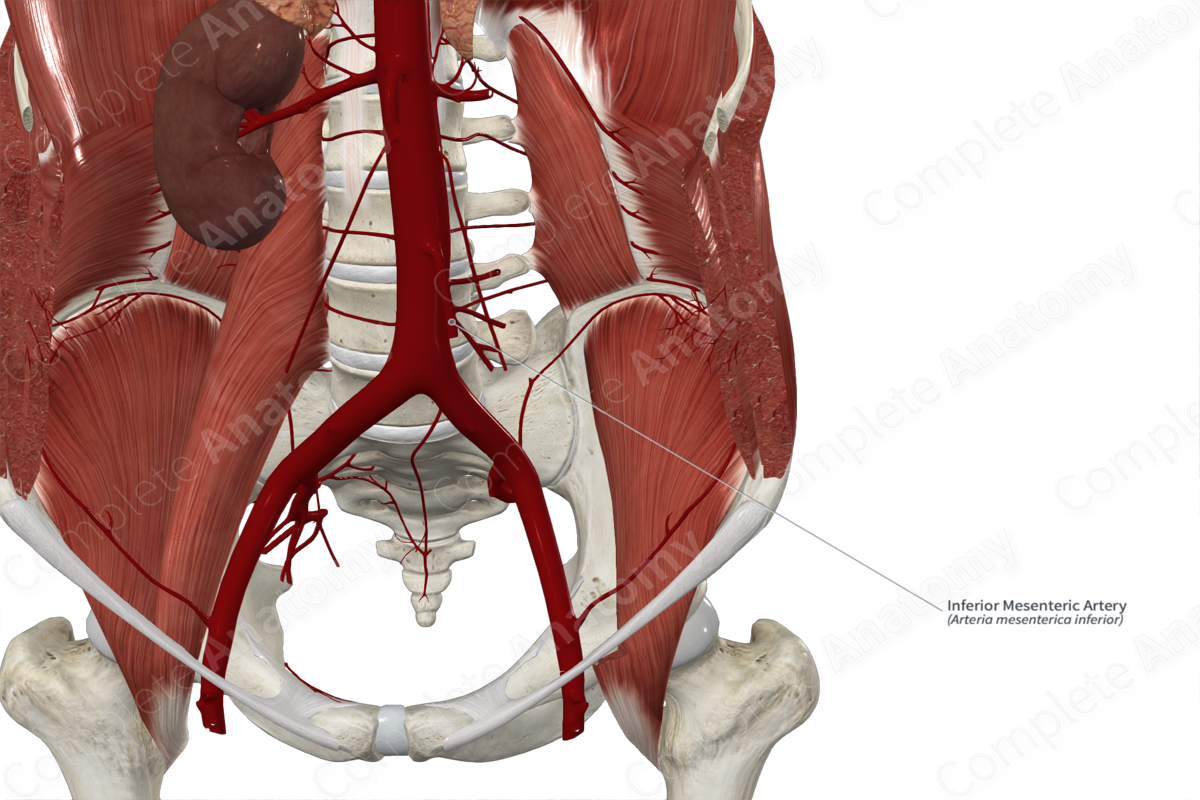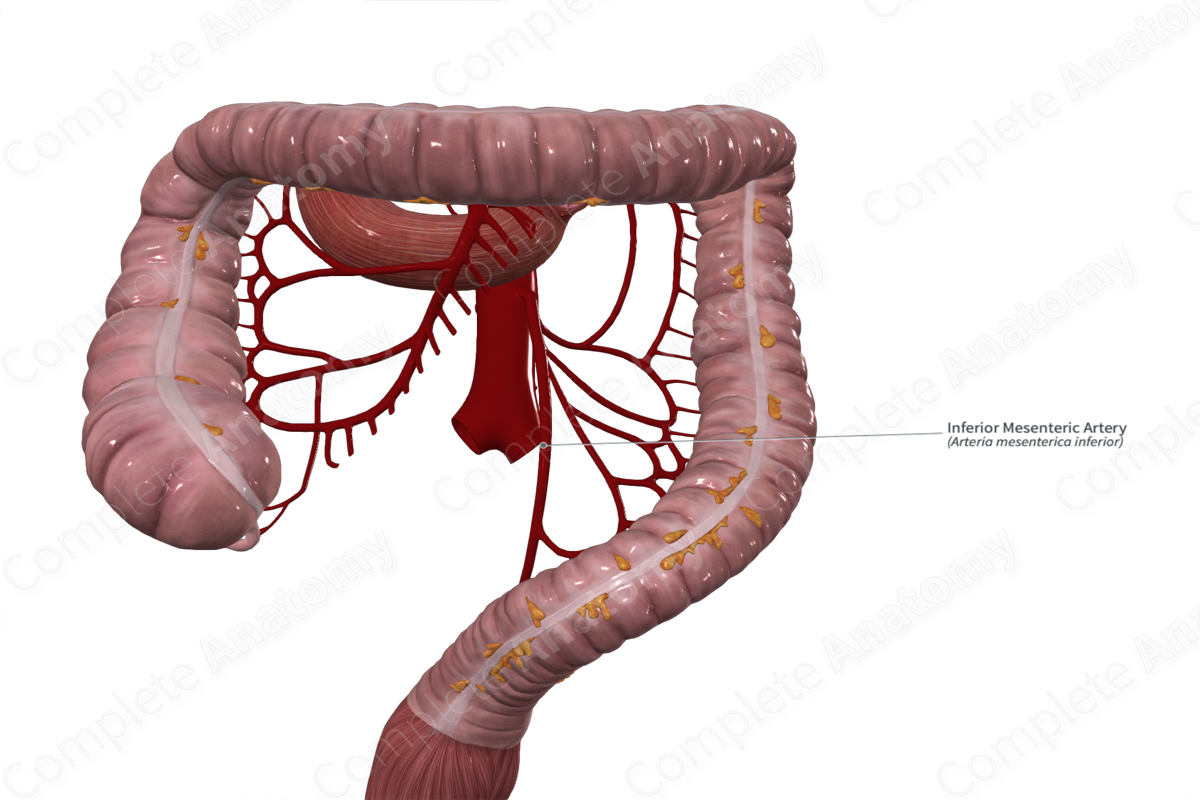
Quick Facts
Origin: Abdominal Aorta.
Course: Inferolateral direction from the aorta to the colon.
Branches: Left colic, sigmoid, and superior anorectal arteries.
Supplied Structures: Structures of the hindgut.
Related parts of the anatomy
Origin
The inferior mesenteric artery is an unpaired branch of the abdominal aorta. It originates at the level of the third lumbar vertebra (L3), approximately 3–4 cm superior to the terminal bifurcation of the aorta.
Course
The inferior mesenteric artery travels anteroinferiorly along the aorta, then deviates towards the left as it passes obliquely towards the pelvic brim.
Along its course it gives off the left colic artery and two to five sigmoid arteries. It sits within the sigmoid mesocolon and crosses the left common iliac artery and pelvic brim. It then continues inferiorly as the superior anorectal artery.
Branches
The inferior mesenteric artery gives off the left colic and sigmoid arteries. It continues inferiorly as the superior anorectal artery. The branches of the inferior mesenteric artery all have additional branches that anastomose with each other. This creates the characteristic arterial arcades of intestinal vasculature.
Supplied Structures
The left colic artery supplies the distal one third of the transverse colon and is the main blood supply to the splenic flexure. The sigmoid arteries supply the sigmoid colon, while the superior anorectal artery is the primary supply to the upper two thirds of the rectum.
Learn more about this topic from other Elsevier products

